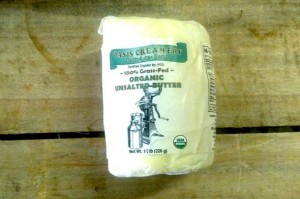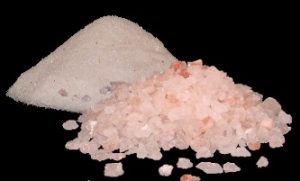Are you someone who picks through every nutritional label at the grocery store with a fine toothcomb, or do you rely on your gut feeling and what you know? If you happen to fall into the latter category, you might be in for a big surprise: not everything that’s supposed to be “healthy” is good for you, no matter how much the big companies would like you to believe.
Here’s the catch, though – unless you already know what you’re looking for, you might buy one of the following items. Why is that so bad? Because these items are toxic, harmful, and could lead to a laundry list of health issues that could easily be avoided by not buying the product in the first place.
Saving this list today can help ensure that you and your family lead long, happy, and – most importantly – healthy lives.
The 5 Pantry Staples You Can Replace
1. Margarine
Remember when we were first told that margarine was not only a substitute for butter but that it was even good for us (even now, I can think of at least two different brands that boast how good they ate for you)? Well, the truth is finally starting to come out – margarine is a hydrogenated oil, and we now know that hydrogenated oils are chalked full of trans fatty acids and can cause coronaries, heart disease, and other chronic illnesses.
 What to Use Instead
What to Use Instead
If you’re not ready or willing to give up that buttery taste yet, know that you don’t have to – switching back to butter is just fine. It’s full of fats that are good for you.
If you choose to go this way with it, though, try to ensure that the butter you buy is pasture-raised and all-natural (the chemicals in some of the more commercial brands can be just as bad for you as margarine is).
2. Refined Vegetable Oil
Here’s the list of refined vegetable oils – soybean, corn, sunflower, canola, and peanut. If any of those oils currently occupy space in your pantry, throw them in the garbage the next time you’re in the kitchen.
The process that’s used to refine these oils is elaborate in the mechanical as well as the chemical aspects; otherwise, they wouldn’t be able to extract the oil from the seed. Also, since most of these oils contain trans fatty acids, they could potentially cause heart disease and certain cancers.
Note: Refined vegetable oil is found in most processed foods, so keep an eye out regardless of what you’re buying.
What to Use Instead
You can easily replace virtually every oil in your kitchen (and bathroom) cabinets with a jar of coconut oil.
Coconut oil can be used for anything from washing your hair to baking or frying something in high heat. I guarantee that once you use this magical oil once, you’ll never want to go back to those other ones.
3. Aspartame
You’ve probably heard that this once-popular artificial sweetener isn’t good for you, but do you know just how bad it is for you? Essentially, it’s a manmade poison – it can cause headaches, dizziness, or blurred vision, and has even been known to cause gastrointestinal damage and could kill your immune system with prolonged use.
 What to Use Instead
What to Use Instead
If you can’t or don’t eat sugar but still have a bit of a sweet tooth, use stevia. Stevia is a sugar substitute that comes from a plant – It has no carbs, no calories, and is 300 times sweeter than sugar (so you’ll have to get used to using a lot less).
You should especially consider switching to Stevia if you’re a diabetic, as it betters your pancreas circulation and helps diminish RA aches and pains. It’s also been credited to be a diuretic, digestive aid, antidepressant, antacid, and even a heart tonic.
4. Agave Nectar
Speaking of sweeteners, Agave nectar was quite the rage for a while. If you’re one of the people who’s still using it, you need to throw it out right away. Agave nectar is an extremely processed sweetener – it contains the highest amount of fructose of all the commercial sweeteners out there (and we all know how bad fructose is for you).
What to Use Instead
Stevia – See above.
5. Salt
Many people seem to get this one confused – table salt isn’t any good for you. Yes, our bodies need Sodium, but this is definitely a low-quality source. Table salt is basically a chemical wasteland (most contain more than 30 synthetic chemicals) that’s been doused in bleach.
The toxicity levels in most commercial table salt are so high that it’s a leading cause of high blood pressure, fluid retention (that can eventually lead to gout), obesity, and liver and kidney issues.
 What to Use Instead
What to Use Instead
Salt from the Himalayan Rock Mountains will give your body absolutely everything it needs – It can help boost your immune system as well as your adrenal and thyroid function, as well as a laundry list of other things.
Your body needs salt to flourish, just make sure you’re giving it the right kind.
Replacing these five items will help you get on the right path – keeping these in mind, as well as eating a diet that’s rich in whole foods and drinking plenty of water, will make a difference in the way you feel as well as the way your body functions as a whole.

 What to Use Instead
What to Use Instead
 What to Use Instead
What to Use Instead What to Use Instead
What to Use Instead